RESISTANCE CINEMA AND THE GLOBAL AFFAIRS COMMITTEE OF COMMUNITY CHURCH of NYC Present
“THE RECKONING: The Battle For The International Criminal Court” Skylight Pictures, Producer Paco de Onis, Director, Pamela Yates, Executive Editor Peter Kinoy, Associate Producer, Sally Eberhardt, (2009, 90 minutes)
WHEN: Sunday February 28, 2010 1:15pm
WHERE: Community Church NYC Gallery Room, 28 East 35th st. @ Park Ave.
ADMISSION: Free, donations appreciated
SPECIAL GUEST: JOHN WASHBURN- Convener of the American Non-Governmental Organizations Coalition for the International Criminal Court (AMICC), co-chair of the Washington Working Group on the International Criminal Court (WICC), and a past president of the Unitarian Universalist United Nations Office.
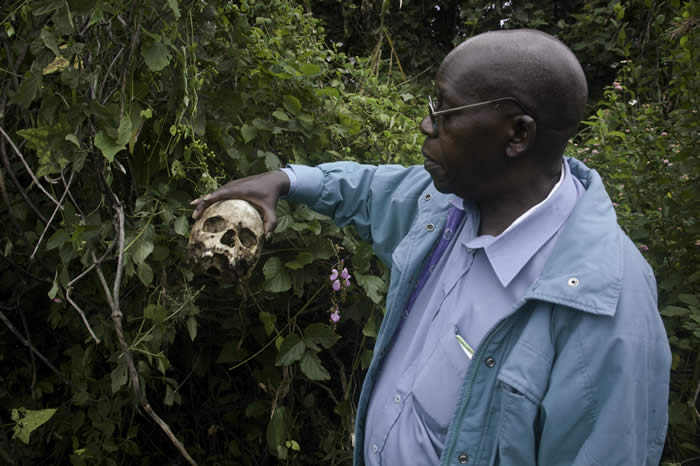
THE RECKONING has a mythological opening. A man holding a human skull in a lonely field offers perhaps the most eloquent argument for the ICC. "Without justice," he says, "people have no respect for each other. If this is left unpunished, it will be repeated." He is speaking of the more than 5 million people killed in the wars that have torn eastern Congo apart since 1998. But he might as well have been speaking for the victims of mass murder in Guatemala (200,000), Cambodia (1.7 million), East Timor (200,000), Sierra Leone (50,000), Bosnia (200,000) and Rwanda (800,000), to name only the most notorious cases.
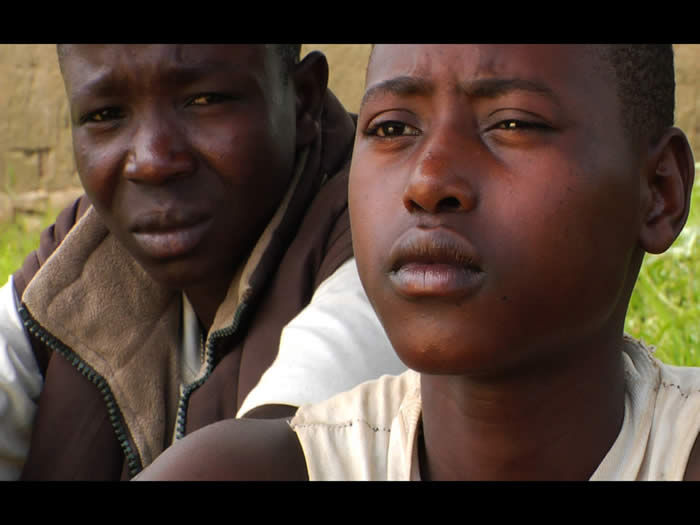 It was the horror of these events — and the prospect of more occurring — that brought the world's nations together at the 1998 Rome Conference and set in motion the negotiations that would lead to the ICC's establishment in 2002. - the first permanent court created to prosecute perpetrators (no matter how powerful) of crimes against humanity, war crimes, and genocide.
It was the horror of these events — and the prospect of more occurring — that brought the world's nations together at the 1998 Rome Conference and set in motion the negotiations that would lead to the ICC's establishment in 2002. - the first permanent court created to prosecute perpetrators (no matter how powerful) of crimes against humanity, war crimes, and genocide.
The Reckoning follows dynamic ICC Prosecutor Luis Moreno Ocampo and his team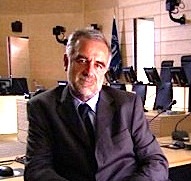 for 3 years across 4 continents as he issues arrest warrants for Lord’s Resistance Army leaders in Uganda, puts Congolese warlords on trial, shakes up the Colombian justice system, and charges Sudan’s President Omar al-Bashir with genocide in Darfur, challenging the UN Security Council to arrest him.
for 3 years across 4 continents as he issues arrest warrants for Lord’s Resistance Army leaders in Uganda, puts Congolese warlords on trial, shakes up the Colombian justice system, and charges Sudan’s President Omar al-Bashir with genocide in Darfur, challenging the UN Security Council to arrest him.
Building cases against genocidal criminals presents huge challenges, and the Prosecutor has a mandate but no police force. At every turn, he must pressure the international community to muster political will for the cause. As this tiny court in The Hague struggles to change the world and forge a new paradigm for justice, innocent victims suffer and wait. Will the Prosecutor succeed? Will the world ensure that justice prevails?
THE RECKONING shows that the idea for the Court goes back further, to the Nuremberg Trials of Nazi leaders following World War II, which the United States was the leader in establishing. This connection is uniquely 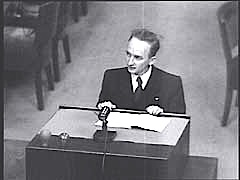 expressed in the film by Ben Ferencz, who, as a 27-year-old lawyer, prosecuted 22 German officers at Nuremberg for murdering over a million people; all were convicted and 13 were sentenced to death. Ferencz never forgot the horror of the Nazi death camps and became a writer on world peace and a tireless campaigner
expressed in the film by Ben Ferencz, who, as a 27-year-old lawyer, prosecuted 22 German officers at Nuremberg for murdering over a million people; all were convicted and 13 were sentenced to death. Ferencz never forgot the horror of the Nazi death camps and became a writer on world peace and a tireless campaigner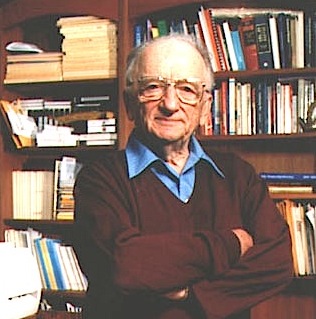 for a permanent tribunal to prosecute crimes against humanity. He recalls the significance of Nuremberg: that the Allies sought justice through rule of law, establishing that no one was above the law and that not only was the killing of civilians a war crime, but the murder of people on the basis of their race, creed or class — genocide — was a crime of the greatest magnitude. Ferencz was there at The Hague on June 16, 2003, when Moreno-Ocampo was sworn in as the first Prosecutor of the new International Criminal Court.
for a permanent tribunal to prosecute crimes against humanity. He recalls the significance of Nuremberg: that the Allies sought justice through rule of law, establishing that no one was above the law and that not only was the killing of civilians a war crime, but the murder of people on the basis of their race, creed or class — genocide — was a crime of the greatest magnitude. Ferencz was there at The Hague on June 16, 2003, when Moreno-Ocampo was sworn in as the first Prosecutor of the new International Criminal Court.
"I started out thinking that THE RECKONING would be about the ICC's cases and trials, like any good crime thriller," says director Pamela Yates. "I quickly realized I had to expand the film's vision to include the far-reaching effects the ICC was having at the local level, with the tremendous amount of controversy as well as hope that its investigations were causing. The Court itself became the protagonist of THE RECKONING, and all the cinematic elements were developed in realizing this idea."
 JOHN WASHBURN has had an extensive career in diplomacy and international governmental and non-governmental organizations. Mr. Washburn was a member of the Foreign Service of the
JOHN WASHBURN has had an extensive career in diplomacy and international governmental and non-governmental organizations. Mr. Washburn was a member of the Foreign Service of the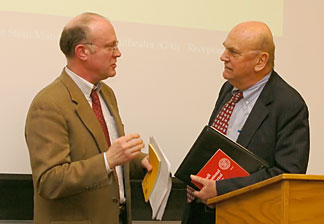 United States from 1963 to 1987. He was a director in the Executive Office of the Secretary-General of the United Nations between January 1988 and April 1993. Thereafter he was a director in the Department of Political Affairs at the United Nations until March 1994. He writes and speaks frequently on the United Nations and has published extensively on relations between the United Nations and the United States on the International Criminal Court.
United States from 1963 to 1987. He was a director in the Executive Office of the Secretary-General of the United Nations between January 1988 and April 1993. Thereafter he was a director in the Department of Political Affairs at the United Nations until March 1994. He writes and speaks frequently on the United Nations and has published extensively on relations between the United Nations and the United States on the International Criminal Court.